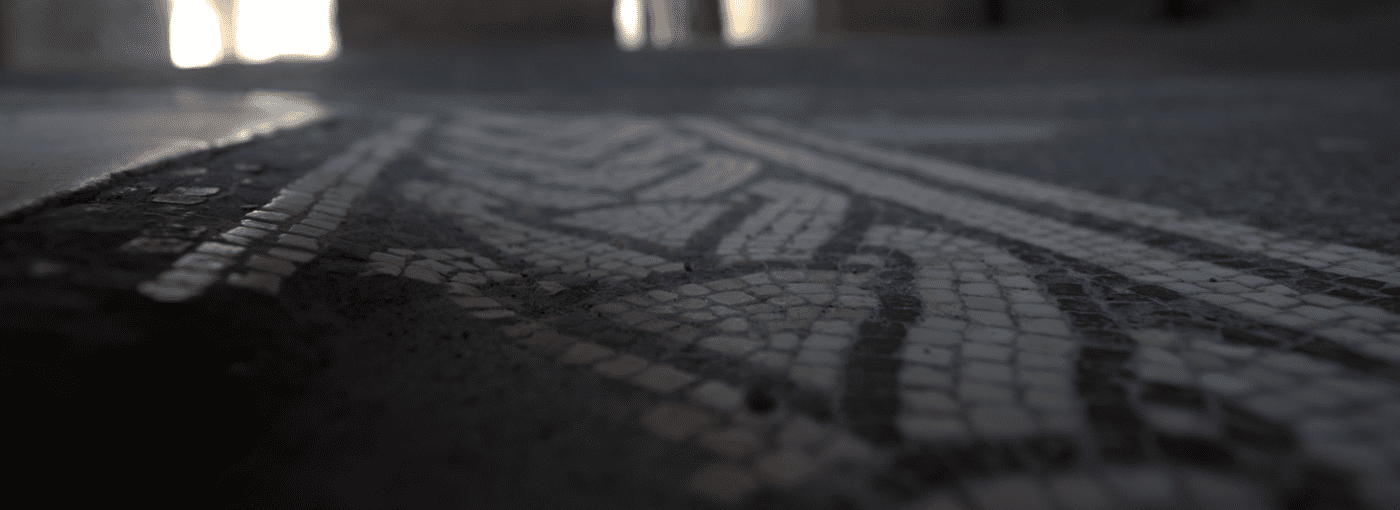
Courses
C.I.Be.C.’s courses:
infos, deadlines, download

MASTER’S COURSE IN ENGINEERING FOR CULTURAL HERITAGE (XX Edition / 2025-2026)
Deadline
The application for admission must be submitted no later than 23rd December 2025
Info
For any communication, send an email to cibec@unina.it
Course structure: The course includes theoretical-practical lessons and seminar activities for at least 60 hours and individual study for at least 75 hours. Attendance is mandatory with at least 80% presence of the total lecture hours; classes will be held on Friday afternoons and Saturday mornings.
Course objectives: The course is aimed at providing critical and operational tools to train professionals with specific technical-scientific skills in the design and implementation of Conservation and Enhancement interventions for Cultural Heritage.
Course themes: Elements of archaeology and history of ancient architecture; architectural construction types; traditional materials and degradation; ancient construction concepts; traditional construction techniques; geotechnics for historic buildings; diagnostics for historic buildings; conservation of historic and modern buildings; innovative materials and modern techniques; multimedia documentation methods (HBim); applied physics for Cultural Heritage; systems engineering for Cultural Heritage; architectural design and conservation; function of protection agencies
Download
MASTER’S COURSE IN MONUMENTS AND EARTHQUAKES (II Edition / 2025-2026)
Deadline
Applications must be submitted no later than September 18, 2025.
Info
The course is intended for Engineers and Architects, holding either a Bachelor’s or Master’s degree. The program includes 60 hours of lectures, held in Italian and scheduled on Friday afternoons and Saturday mornings, with the possibility of attending entirely online in synchronous mode. Recognition of professional development credits has also been requested from the National Councils of Engineers and Architects.
The course provides both methodological and practical tools aimed at reducing the seismic vulnerability of monuments and historic masonry buildings, through a structured process involving preliminary analyses, including qualitative and instrumental investigations, structural modeling, and the design of retrofitting or strengthening interventions.
Course topics include:
Structural restoration techniques
and much more.
Principles of conservation and restoration
Geomatic techniques for surveying and structural monitoring
Elements of structural dynamics
Finite element analysis of masonry structures
Seismic vulnerability
Fundamentals of geotechnics and foundation interventions
Download
MASTER’S COURSE IN ENGINEERING FOR CULTURAL HERITAGE (XIX Edition / 2024-2025)
Deadline
The application for admission must be submitted no later than 7th March 2025
Info
For any communication, send an email to cibec@unina.it
Course structure: The course includes theoretical-practical lessons and seminar activities for at least 60 hours and individual study for at least 75 hours. Attendance is mandatory with at least 80% presence of the total lecture hours; classes will be held on Friday afternoons and Saturday mornings.
Course objectives: The course is aimed at providing critical and operational tools to train professionals with specific technical-scientific skills in the design and implementation of Conservation and Enhancement interventions for Cultural Heritage.
Course themes: Elements of archaeology and history of ancient architecture; architectural construction types; traditional materials and degradation; ancient construction concepts; traditional construction techniques; geotechnics for historic buildings; diagnostics for historic buildings; conservation of historic and modern buildings; innovative materials and modern techniques; multimedia documentation methods (HBim); applied physics for Cultural Heritage; systems engineering for Cultural Heritage; architectural design and conservation; function of protection agencies
Download
MASTER’S COURSE IN ENGINEERING FOR CULTURAL HERITAGE (XVIII Edition / 2023-2024)
Deadline
The application for admission must be submitted no later than 12nd December 2023
Info
For any communication, send an email to cibec@unina.it
Final objectives: The training of professionals, officials and technicians in the field of Conservation of Cultural Heritage, in particular of the historical building, has unique connotations and specificities compared to the academic preparation of engineers and architects. It requires the preliminary acquisition of an interdisciplinary language that combines the needs of historical knowledge and conservation with the technical-scientific issues related to the degradation of the products, their safety and usability. For the various specialist sectors, the peculiarities related to the problems of Cultural Heritage will be highlighted through the analysis of the most recurrent cases. Finally, the basic criteria and guidelines for the conservation projects of architectural and historical-artistic artifacts will be provided.
Aim: The course provide critical and operational tools in order to train professionals with specific technical-scientific skills in the design and implementation of interventions of Conservation and Enhancement of Cultural Heritage.
Download
MASTER’S COURSE IN MONUMENTS AND EARTHQUAKES (I Edition / 2022-2023)
Deadline
The application for admission must be submitted no later than 18th May 2023
Info
The result will be communicated by email.
The course illustrates methodological and operational aspects aimed at reducing the seismic vulnerability of monuments and the historical building through the phases of preliminary analysis consisting of qualitative and instrumental investigations, structural modelling and structural improvement/adjustment interventions.
Topics: Principles of conservation and restoration, geomatic techniques of survey and structural monitoring, elements of structure dynamics, analysis with the finite element method, seismic vulnerability, geotechnical elements and interventions on foundations, structural restoration and much more.
MASTER’S COURSE IN ENGINEERING OF CULTURAL HERITAGE (XVII Edition / 2022-23)
Deadline
The application for admission must be submitted no later than 12nd November 2022
Info
Submission of the application for admission in duplicate at the secretariat of the C.I.Be.C.(by hand, by registered mail A.R. or via P.E.C.).
The final ranking will be posted to the Register of Cibec and published
on this website
Abstract: In the last fifty years the most peculiar aspects of both civil and industrial engineering have been called to play a fundamental role in the conservation of Cultural Heritage and in particular of the built heritage. This task is often addressed in a design vision that does not take into account the specificities of Cultural Heritage; moreover, the regulations of engineering, designed for modern architecture, are often not in tune with the principles of the preservation of Cultural Heritage. For over a decade, C.I.Be.C. has been committed to establishing a synergy between humanistic knowledge and technical-scientific knowledge, in order to promote a conservation project culture based on historical and scientific bases.
Aim: The training of professionals, officials and technicians in the field of Conservation of Cultural Heritage, in particular of the historical building, has unique connotations and specificities compared to the academic preparation of engineers and architects. It requires the preliminary acquisition of an interdisciplinary language that combines the needs of historical knowledge and conservation with the technical-scientific issues related to the degradation of the products, their safety and usability. For the various specialist sectors, the peculiarities related to the problems of Cultural Heritage will be highlighted through the analysis of the most recurrent cases. Finally, the basic criteria and guidelines for the conservation projects of architectural and historical-artistic artifacts will be provided. The course is aimed at providing critical and operational tools in order to train professionals with specific technical-scientific skills in the design and implementation of interventions of Conservation and Enhancement of Cultural Heritage.
Topics:
- Elements of archeology and history of ancient architecture
- Elements of architecture history
- Building types of architecture
- Traditional materials and degradation
- The ancient construction concept
- Traditional building techniques
- Geotechnics for the historical built
- Diagnostics for the historical built
- The preservation of the historical built and the modern built
- Innovative materials and modern techniques
- Multimedia documentation methods
- Applied Physics for Cultural Heritage
- Plant for Cultural Heritage
- Principles of lighting technology
- Architectural design and conservation
- Management and enhancement of cultural heritage
Download
MASTER’S COURSE IN ENGINEERING FOR ARCHAEOLOGY (2019-2020)
Deadline
The application for admission must be submitted no later than 20th September 2019
Info
Submission of the application for admission in duplicate at the secretariat of the C.I.Be.C.(by hand, by registered mail A.R. or via P.E.C.).
The final ranking will be posted to the Register of Cibec and published
on this website
Aim: The course aim at training graduates with specific technical-scientific skills related to the morphological and structural characteristics of the Archaeological Heritage, the characteristics and properties of the materials and their degradation, possible intervention strategies to formulate projects aimed at stopping the processes of degradation and “improvement” of archaeological artifacts, also with regard to technological aspects.
Topics:
- Elements of archeology and history of ancient architecture;
- Building types of ancient architecture;
- Chemistry for Archaeology: materials and degradation;
- The ancient construction concept;
- Traditional building techniques;
- The contribution of geotechnics to archaeology
- Diagnostics for the archaeological built
- The preservation of the archaeological building
- Innovative materials and modern techniques
- Multimedia methods of documentation
- Applied Physics for Archaeology
- Criteria for the preservation and protection of specimens
- Sustainability principles for archaeological heritage
